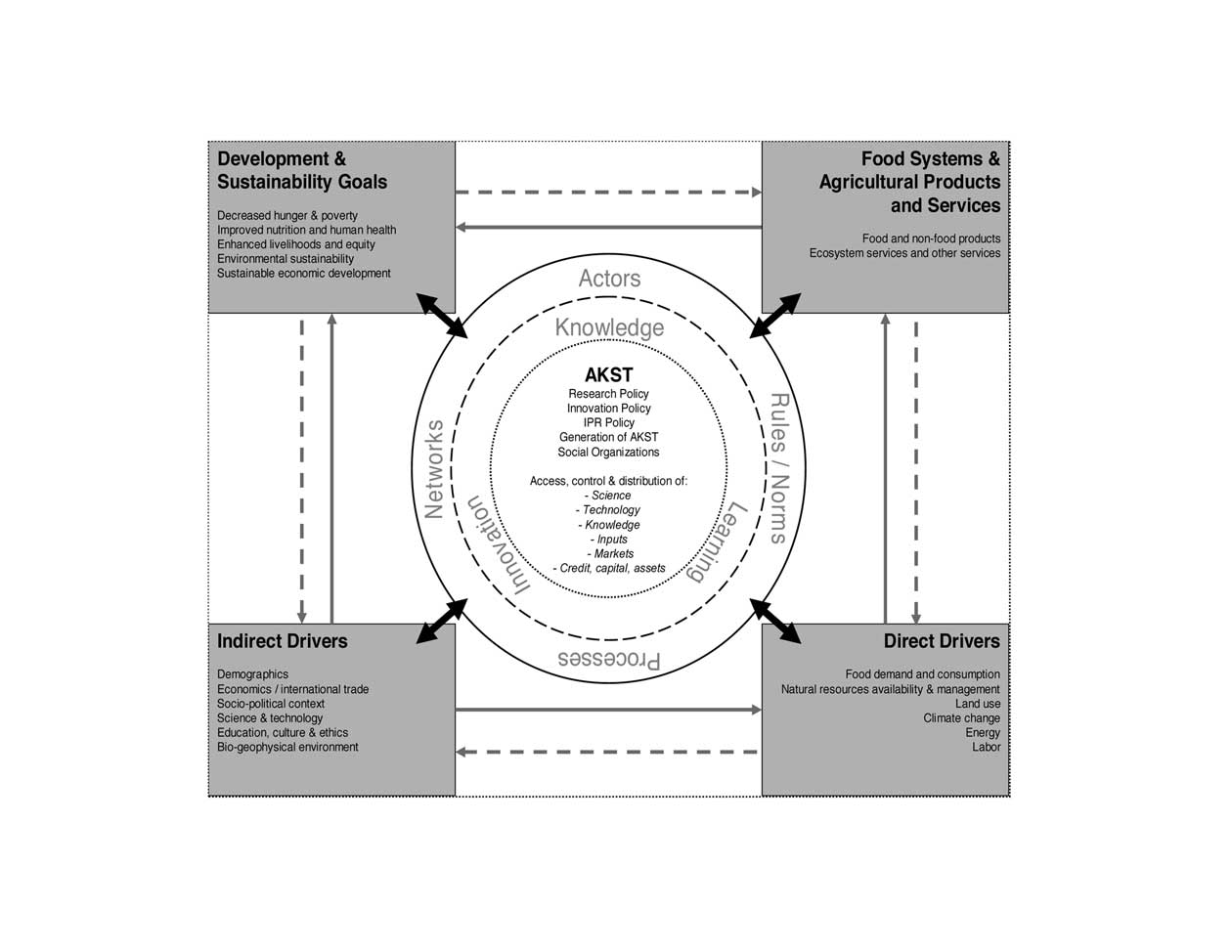
| Previous | Return to table of contents | Search Reports | Next |
| « Back to weltagrarbericht.de | ||
6 | Latin America and the Caribbean (LAC) Report

Figure 1-2. IAASTD Conceptual Framework
|
In Latin America and the Caribbean, little progress has been made toward the millennium development goals (UNDP, 2005a). Based on the index of purchasing power parity of individuals and progress in fighting malnutrition and hunger, the region tends towards impoverishment, and the number of malnourished people in the region has diminished very slowly. In particular, in LAC in the last 10 years the number of poor and the rate of inequality has increased (Cardoso and Helwege, 1992; Rosenthal, 1996; Berry, 1998; O'Donnell and Tockman 1998; Hoffman and Centeno, 2003; Portes and Hoffman, 2003; CEPAL, 2004a; Ferranti et al., 2004). Notwithstanding the great biodiversity and availability of natural resources, the rate of environmental degradation is the highest in the world, largely because of the type of agricultural development (industrial productivist model) pursued over the last 50 years. From 1970 to 2000, on average six hectares were deforested daily, only 60% of which was used for agricultural production; the remaining 40% were abandoned due to problems of degradation and land speculation (UNEP, 2002a). Increases in production and more intense use of the land, particularly in tropical areas, have led to problems of compaction, salinization, desertification, soil erosion, water pollution and negative effects on biodiversity and human health. The environmental, economic and social vulnerability of the planet, lifestyles, productive systems |
and ecosystems is associated with industrial development that has accorded priority to the mechanical and instrumental dimension over human, social and ethical considerations in human relations with other forms of life and with nature. If this vulnerability reflects problems brought about by human action, sustainability can only emerge from social learning (Bhouraskar, 2005) and through human interaction (Röling, 2003) to create consensus-based actions that transcend particular private interests. Nonetheless, the proposals and solutions of the majority of development "experts" reveal that they themselves are held hostage to the mode of innovation (mode of interpretation + mode of intervention) that has prevailed in creating the problem that we need to grasp if we are to be able to overcome it. Following Albert Einstein, who said that it was not possible to overcome a complex problem using the same method that gave rise to it, this evaluation is done based on the premise that it is not possible to overcome complex situations using the same mode of interpretation and the same mode of intervention that gave rise to them. Therefore, it is urgent to undertake a critical analysis of the factors that gave rise to the presentday situation of poverty, hunger, inequality and environmental degradation so as to avoid falling once again into the same trap and to be able to propose options with real possibilities of change. |
| Previous | Return to table of contents | Search Reports | Next |
| « Back to weltagrarbericht.de | ||